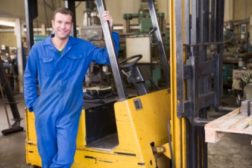Home » work related stress
Articles Tagged with ''work related stress''
Work-home interference contributes to burnout
Especially for women, lowering work-home conflicts may reduce burnout
April 11, 2014
Many 60-year-old employees healthier than their 30-something counterparts
U.K. study shows stress, lifestyle choices can make a difference
December 18, 2013
Workaholics work harder – not better
High strain linked to decreased job performance for those addicted to work
November 21, 2013
How to really focus up
Coffee, Five Hour Energy, or Red Bull, pick your poison.
August 14, 2013
Florida workers stressed out about hurricanes
Study finds high anxiety related to possibility of storms
July 9, 2013
German workers are stressed out
Nearly half don’t anticipate working until retirement age
June 25, 2013
Never miss the latest news and trends driving the safety industry
eNewsletter | Website | eMagazine
JOIN TODAYCopyright ©2024. All Rights Reserved BNP Media.
Design, CMS, Hosting & Web Development :: ePublishing







